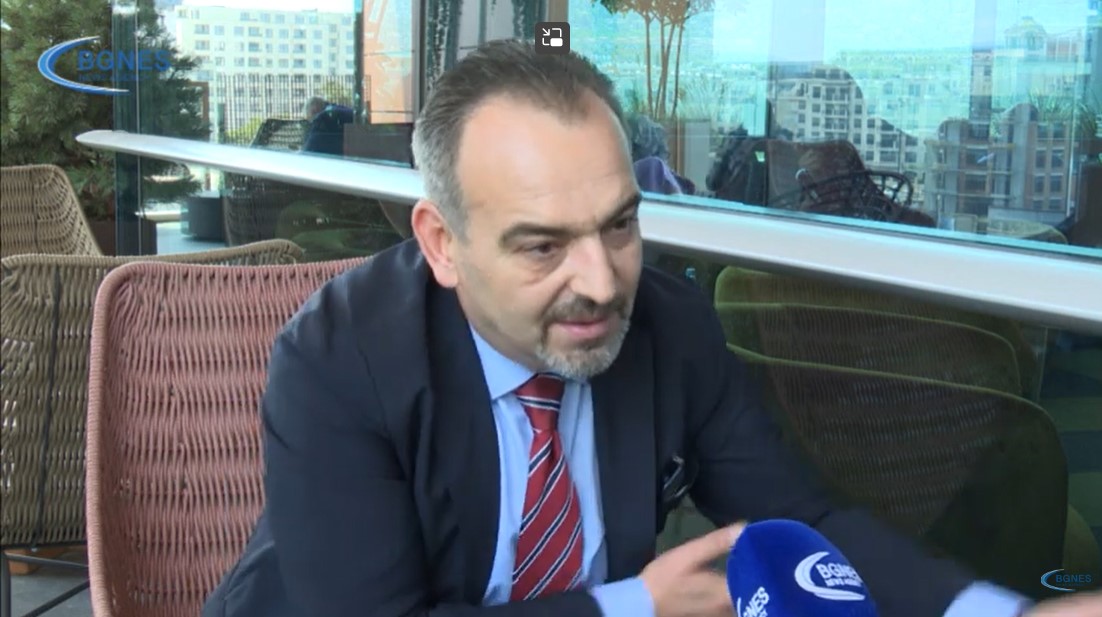- The circular economy will make Bulgarian business more competitive, we must implement the European requirements so that our industry is not threatened.
- Bulgarian business is preparing for the circular economy, but it needs a partner in the form of the state.
- The Eurozone and Schengen are the two huge incentives for the industry and their membership will increase the income of Bulgarians.
This said in an interview for BGNES Dobri Mitrev, President of the Bulgarian Industrial Association (BIA).
Business and the circular economy
"The circular economy will certainly make Bulgarian business more competitive, because the requirements, regulations and directives that the European Commission creates, lead to the fact that if we do not pass this path, do not implement these goals, we will exit the supply chains, which will ruin us as an economy and industry," said Dobri Mitrev.
Bulgarian business is hardly 100% ready for the circular economy, but where it prepares, it succeeds. The President of BIA gave the example of the voluntary platform "Plastic Pact", which they created. Its aim is to drastically reduce the number of discarded packaging, mostly plastics. "They come in as a valuable resource for industry through their reuse, which in turn will reduce the use of new resources. This increases efficiency, leads to lower emissions, and to much-needed raw material for industries, which is particularly valuable in disrupted supply chains," said Dobri Mitrev.
For a faster realisation of the objectives of the circular economy, a state-led policy is needed.
"We need to change the regulatory framework to facilitate and encourage all actions, measures, investments that businesses make to reduce their carbon footprint, to make the most of their products for longer, to repair end-of-life machinery, electronic equipment, furniture, textiles. This will lead to lower prices for consumers, lower prices for producers, a cleaner environment, a greater economic impact," said the President of BIA.
Bulgarian business also needs partnership with institutions.
"A partnership that leads to the achievement of these common goals. This means that all legal acts, whether at state or municipal level, should be consulted with stakeholders," Mitrev said.
According to him, support measures should facilitate the administration of processes and regulations.
"If a company decides to change its fuel or feedstock base to something cleaner, why not make it easier for that process to happen within months rather than years. These are great incentives because they save money and do not demobilise economic operators to pursue such goals," he said.
Mitrev hopes that the circular economy will not lead to the deindustrialisation of Bulgaria. "One of the advantages we have as a country is nature, people and that we are still an industrial country. If we meet the goals, if we as a country and citizens work in the right direction, we can become much more competitive, much more influential on an industrial level not only in the EU, but also in the whole world," the BIA chairman believes.
Let's mobilise our forces, let's enter the eurozone without compromising
Regarding the initial parameters that were announced by the Minister of Finance in the budget, the BIA fully agrees with the budget deficit of 3% formed, because this will ensure that we try to spend almost as much as we receive. 3% is extremely important because it is part of the Maastricht criteria and one of the leading quantitative criteria for our admission to the euro area.
"It is good that this year and next year we all mobilise to fit within the parameters so that the Commission can say yes to Bulgaria without compromise. The eurozone and Schengen make us part of a civilised financial society. They are the two great stimulants for Bulgarian industry and economy. I am convinced that they will lead to higher incomes for citizens", Dobri Mitrev said.






